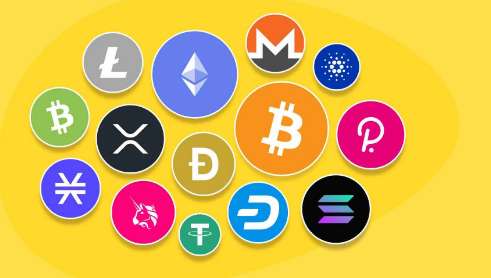Companies Are Ditching Bitcoin-Only Strategies, But It's Causing An $116 Billion Dispute
The traditional conflict between Bitcoin purists and altcoin advocates is escalating into a high-stakes battlefield—corporate balance sheets—amid a surge in corporate digital asset allocation. As comp
 The traditional conflict between Bitcoin purists and altcoin advocates is escalating into a high-stakes battlefield—corporate balance sheets—amid a surge in corporate digital asset allocation. As companies incorporate unprecedented amounts of digital assets into their balance sheets, the debate over token classification has evolved from ideological disputes into a capital game involving real money.
The traditional conflict between Bitcoin purists and altcoin advocates is escalating into a high-stakes battlefield—corporate balance sheets—amid a surge in corporate digital asset allocation. As companies incorporate unprecedented amounts of digital assets into their balance sheets, the debate over token classification has evolved from ideological disputes into a capital game involving real money.
At the core of this conflict are two opposing logics: store of value versus growth trajectory. Bitcoin maximalists adhere to its rigid 21 million supply cap and ideological purity, considering it the only legitimate digital asset. In contrast, the altcoin camp, represented by yield-generating tokens like Ethereum and Solana, constructs dynamic return portfolios emphasizing utility, diversification, and innovation.
With institutional funds flowing in, rising altcoin prices are challenging the consensus that "Bitcoin should dominate balance sheets." A recent example is Pantera raising $500 million to invest in Helius, a Solana-based digital asset treasury company, underscoring this trend.
"Bitcoin offers stability and simplicity. Altcoins offer utility, diversification, and innovation," said Sam Tabar, CEO of Ethereum asset management firm Bit Digital, which has $544 million in assets under management. He emphasized that a wise strategy should combine the resilience of both.
However, the controversy centers on supply limits and volatility: Bitcoin's fixed cap is seen as the cornerstone of its "digital gold" status, while the absence of such a limit in Ethereum and Solana has made them targets for criticism from Bitcoin advocates. Even though Bitcoin itself is highly volatile, altcoins are even more so—Matt Cole, CEO of Strive Inc., openly called Ethereum "a terrible asset" at the Bitcoin Asia conference in Hong Kong.
Yet, investment giants are voting with real money: Digital Asset Treasury (DAT) companies hold Ethereum with a market value exceeding $16 billion, and Peter Thiel holds significant stakes in two of these firms. Solana buyers are also hoarding billions of dollars.
Although still modest compared to the $116 billion scale of Bitcoin treasuries, this shift has attracted market attention—a growing number of investors are exploring strategies beyond the "Bitcoin-centric" model pioneered by Michael Saylor.
Yield generation has become a key differentiator. Theoretically, altcoins can more easily generate returns through crypto-native strategies such as staking, restaking, and lending, whereas Bitcoin is less adaptable to such scenarios.
However, both types of assets are under pressure amid market volatility: After a sharp rise in early 2025, METAPLANET INC (MTPLF.US), which transitioned from hospitality to a "Bitcoin proxy," saw its stock price drop about 70% from its mid-June high. In the altcoin space, ALT5 Sigma (ALTS.US), which holds WLFI tokens associated with a Trump-related project, saw its stock price halve within a week, while Ethzilla (ETHZ.US), backed by Peter Thiel, has fallen nearly 68% since its launch.
Christopher Perkins, President of CoinFund, dubbed this market trend the "DAT Summer," emphasizing that each DAT and token has a unique combination of returns and risks.
The focal point of the controversy is whether altcoins can withstand the "quality test" in the next bear market. Adam Back, co-founder of Blockstream and a staunch Bitcoin supporter, warned: "Altcoins tend to suffer very badly in the bear market, and if that happens to a treasury company, it's just going to be a fat failure."
Disclaimer: The views in this article are from the original Creator and do not represent the views or position of Hawk Insight. The content of the article is for reference, communication and learning only, and does not constitute investment advice. If it involves copyright issues, please contact us for deletion.